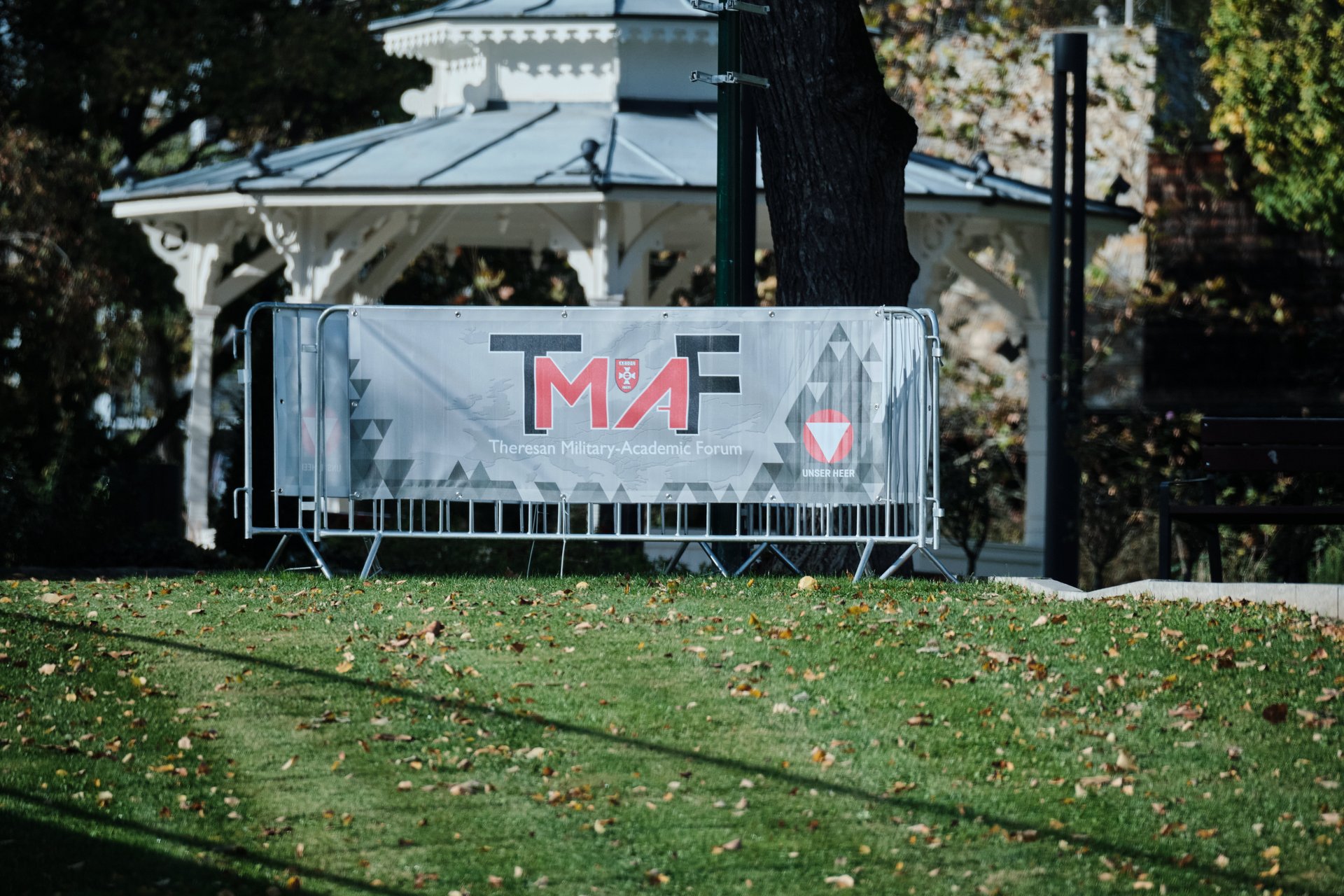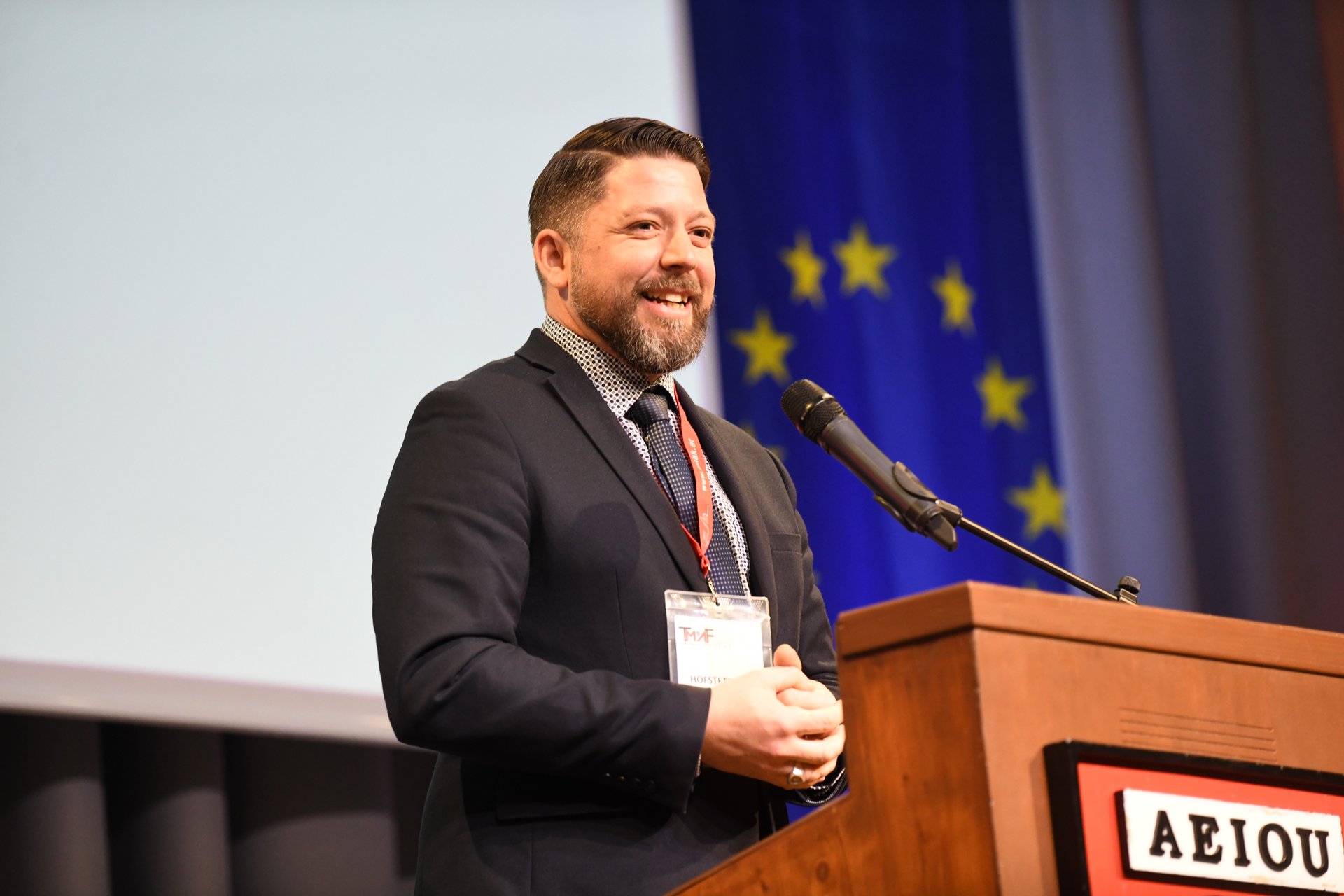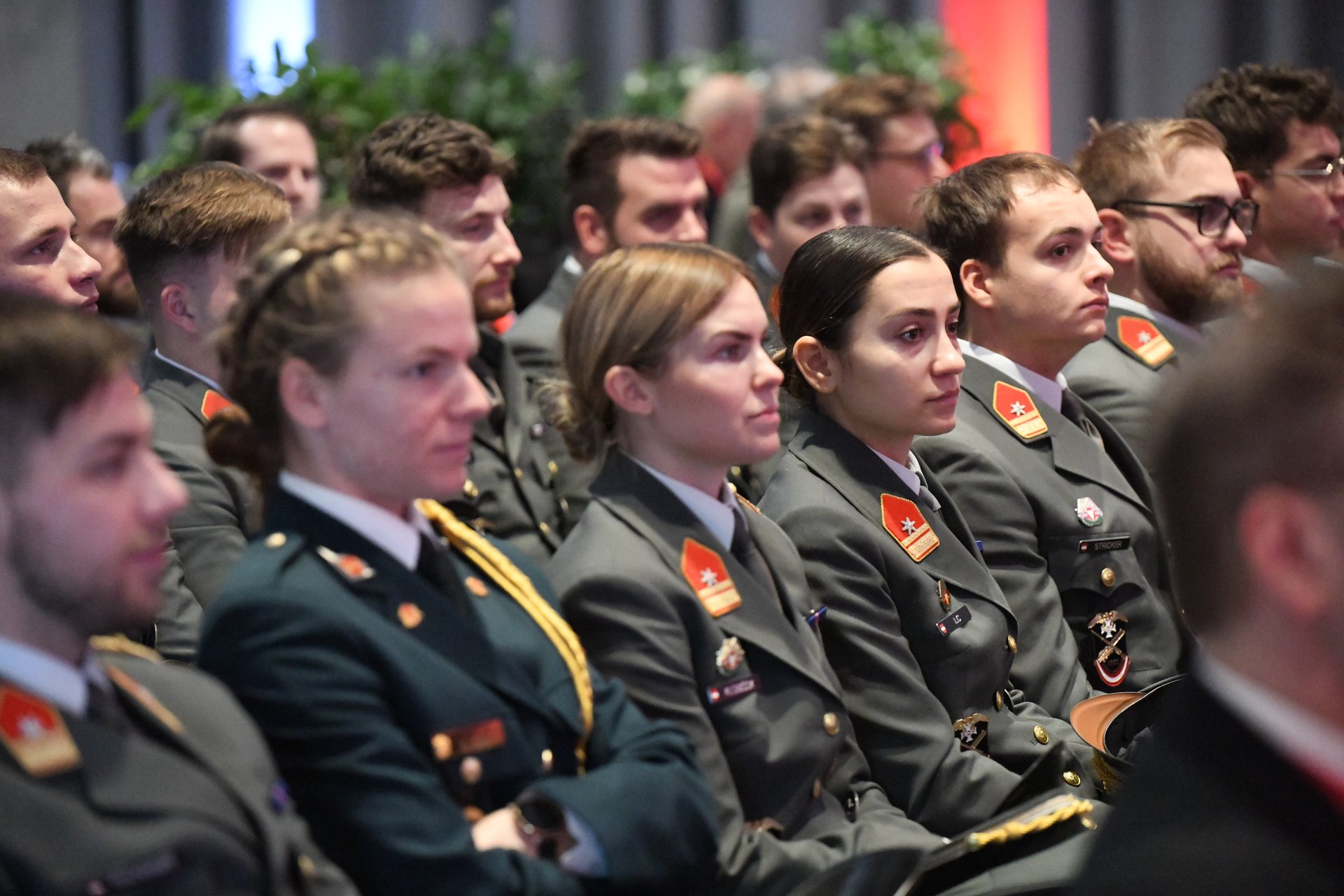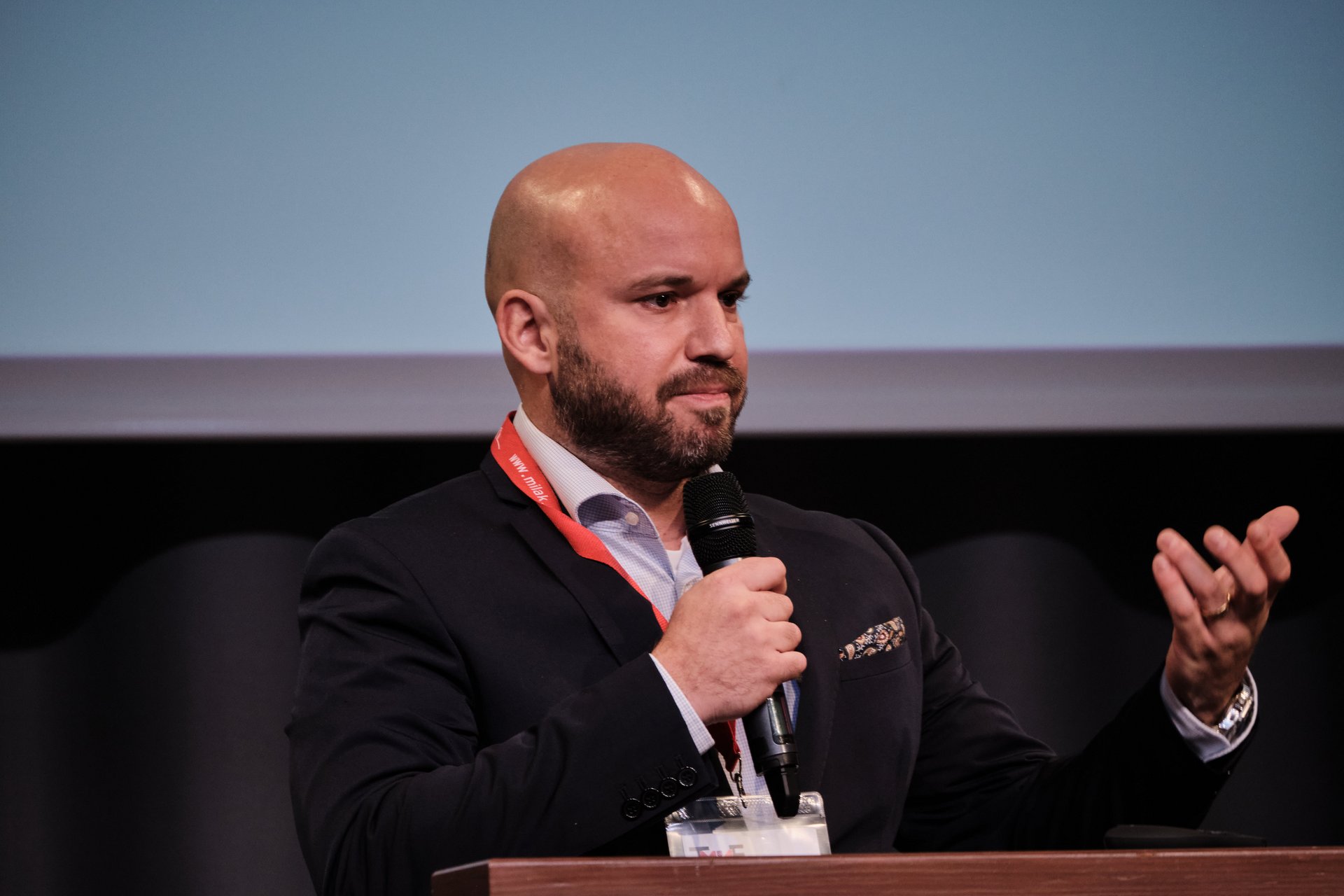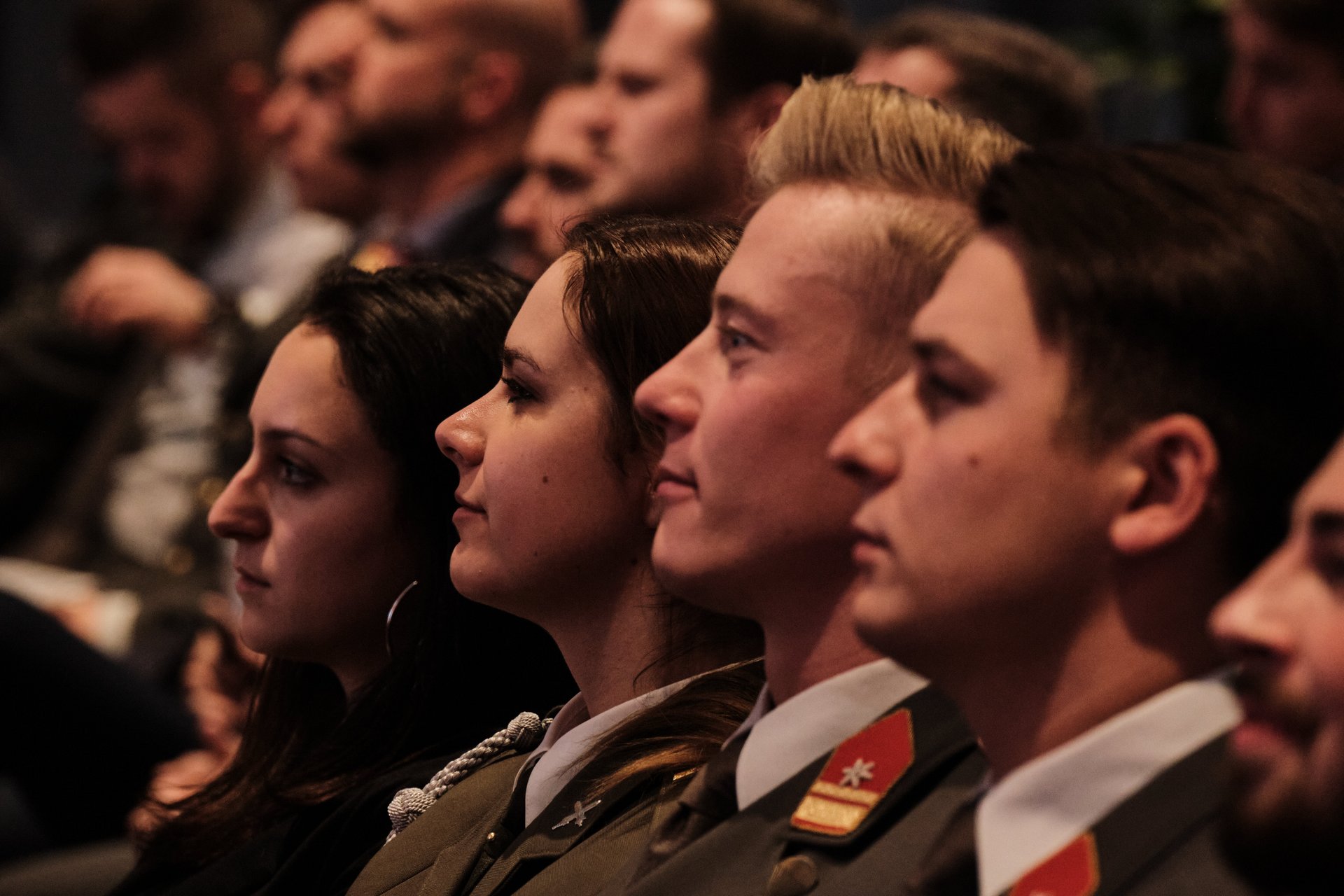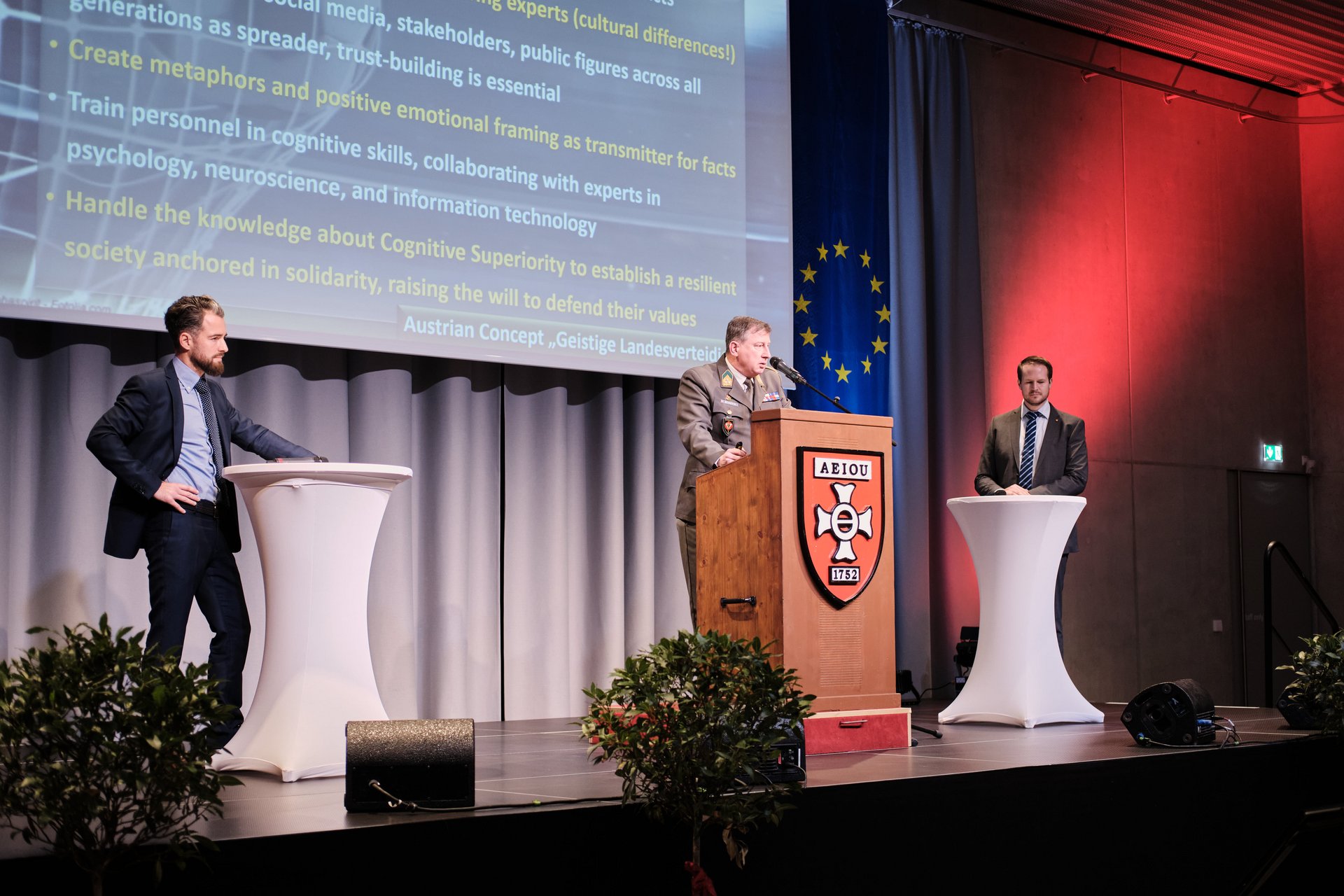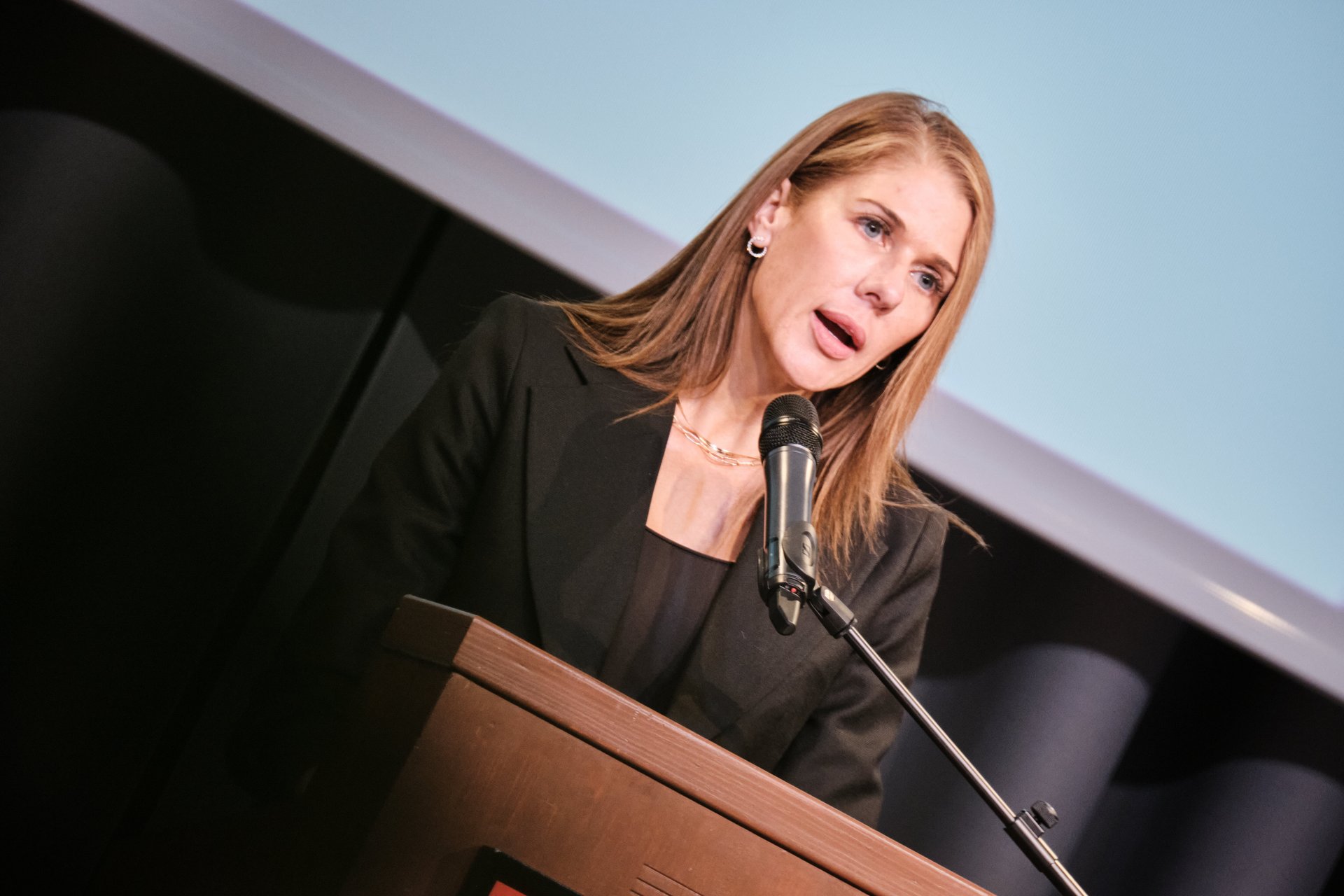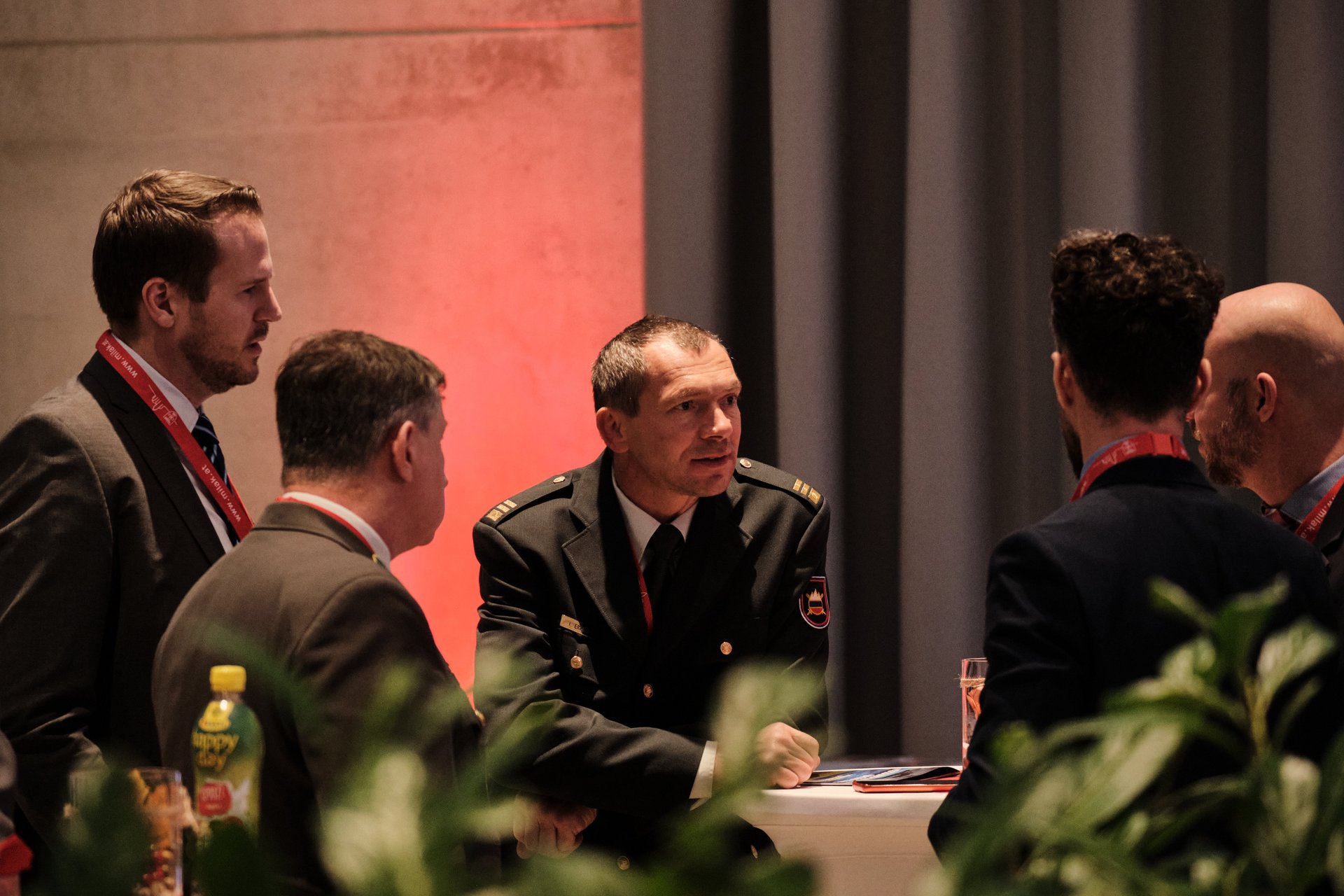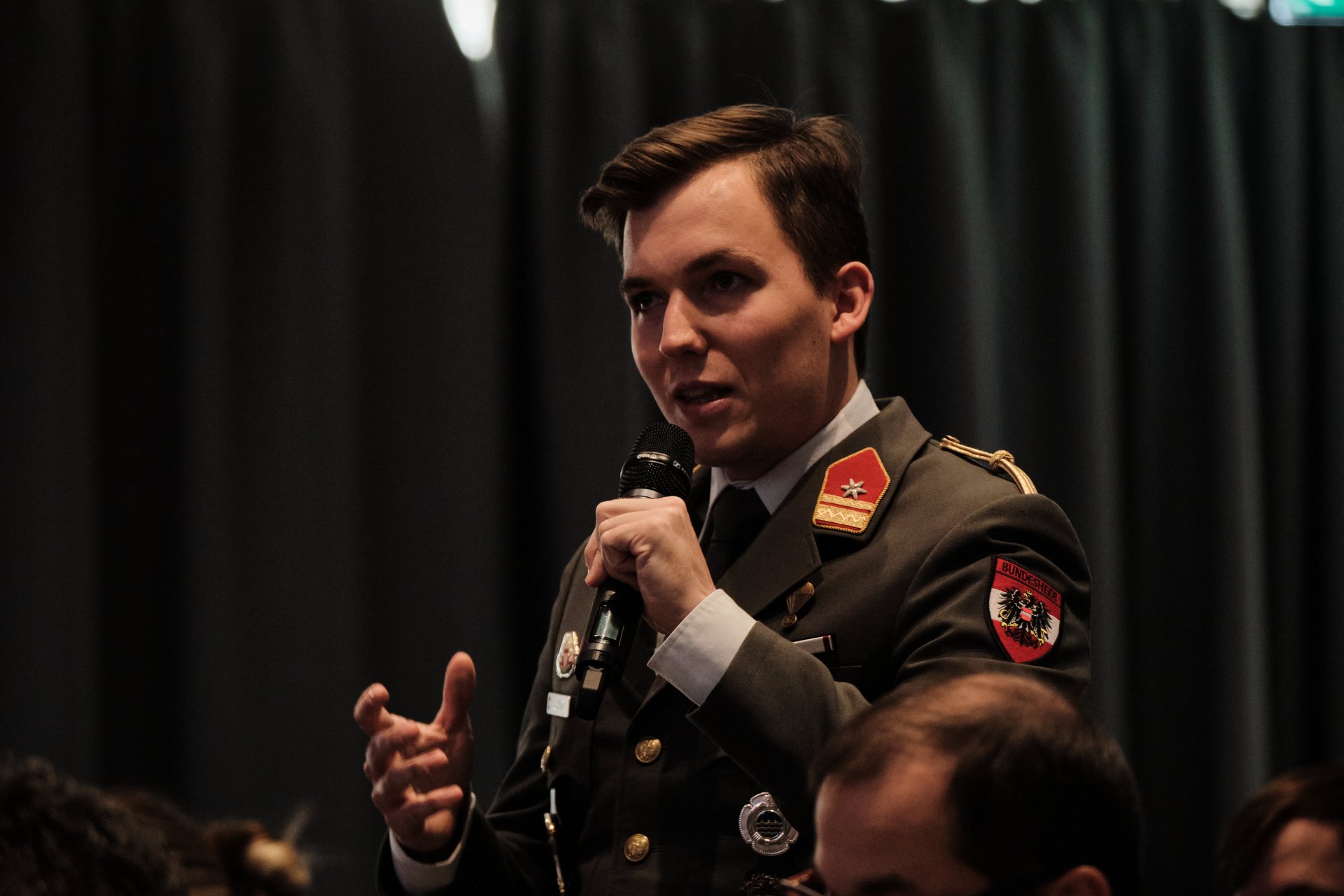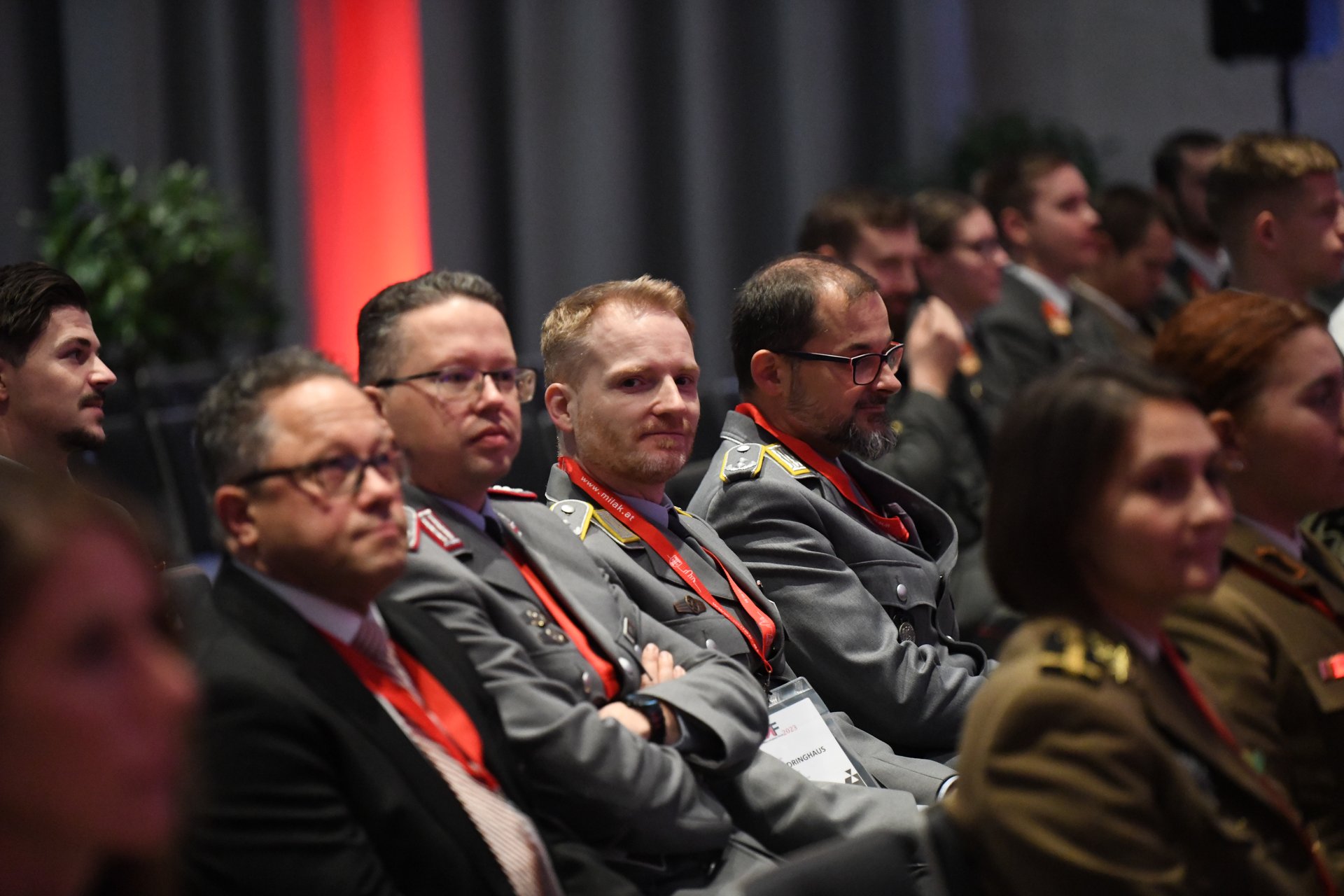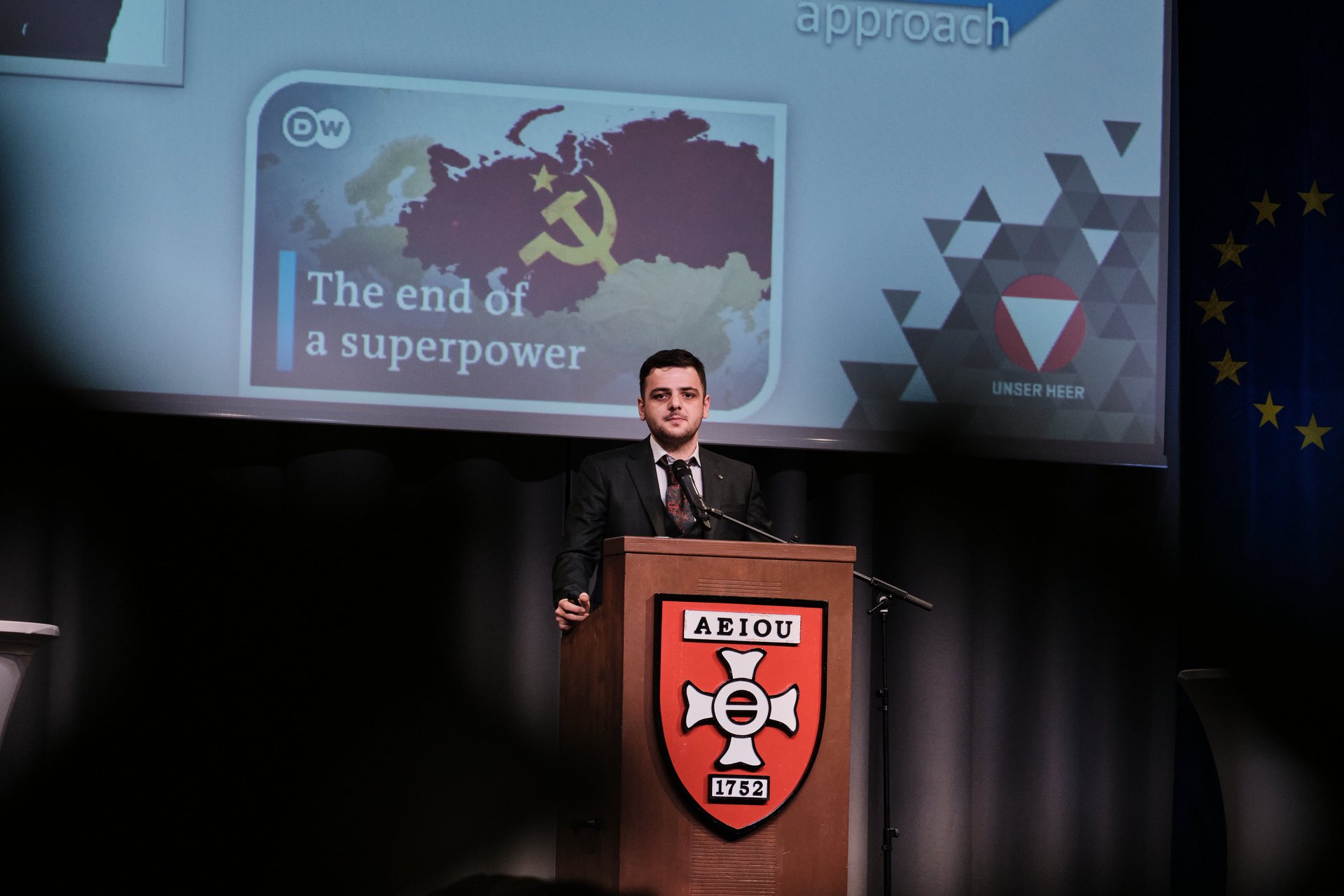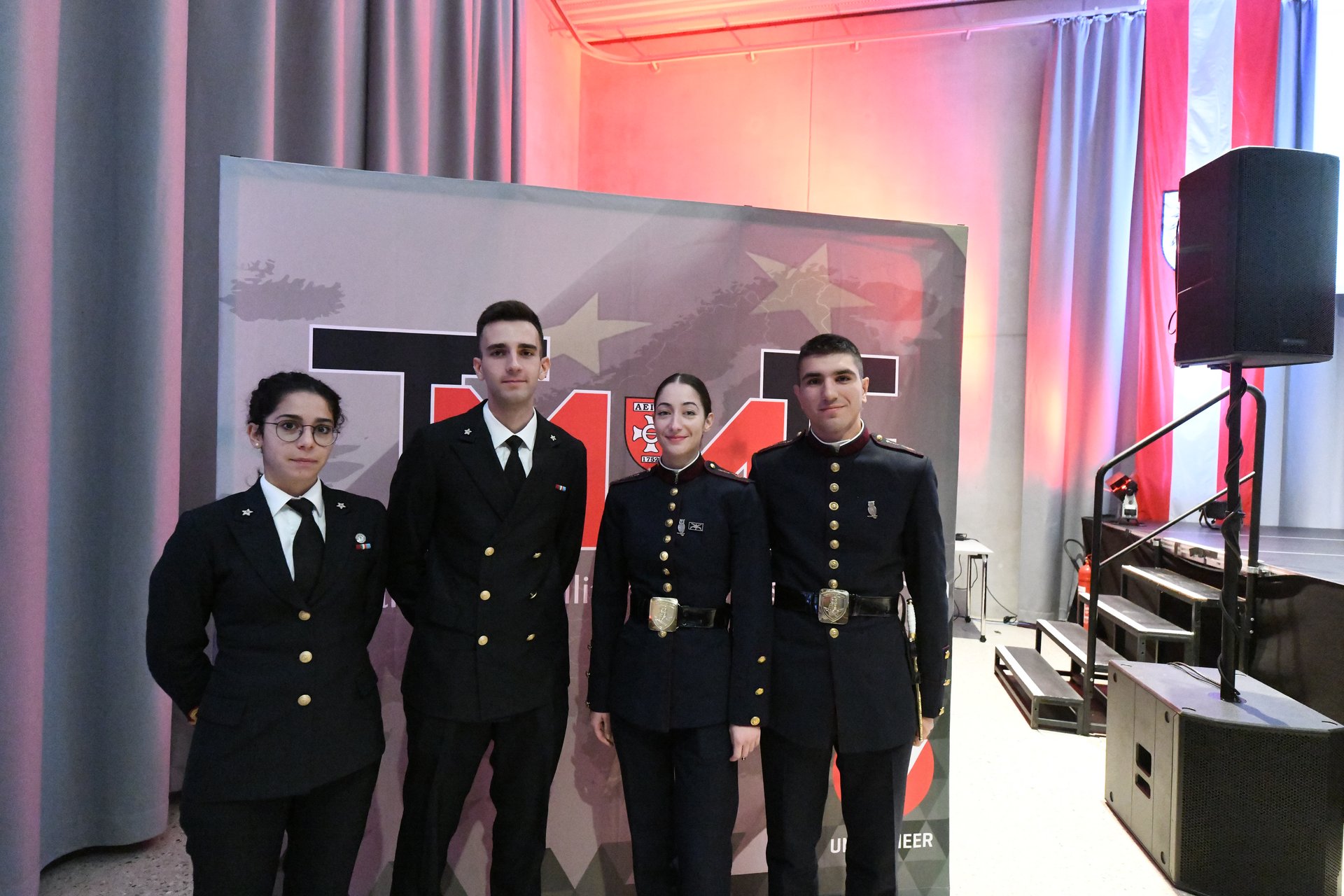„Cognitive Warfare – Fighting and Winning Wars in the 21st Century?”
The Theresian Military Academic Forum (TMAF) took place from 6-9 November 2023 in Wiener Neustadt. It was held in the event centre ‘Kasematten Wiener Neustadt’ and, once again, in cooperation with the ‘The Defence Horizon Journal (TDHJ)’.
In cognitive warfare, the human mind becomes the battlefield. The goal is not only to change what people think but also how they think and act. If it is successfully conducted, the beliefs and behaviours of individuals and groups can be shaped and influenced to favour the attacker's goals. While information warfare aims to control pure information in all its forms, cognitive warfare aims to control how individuals and populations react to the information presented. Therefore, achieving and maintaining cognitive superiority is key to increasing the operational readiness of armed forces on the one hand, and the resilience of our democratic societies on the other.
Call for Papers
For the first time, the call for papers had a global reach, with applications from potential speakers on four continents. The Scientific Committee selected the speakers for the programme from these applications, and the selected speakers came from nine different nations. As in the previous year, the TMAF was conducted in English on the first two days. On the third day of the event, the content was then discussed in greater depth in German. The symposium programme followed the usual sequence of three thematically related lectures followed by a discussion between the audience and the speakers.
Opening
On Tuesday, 7 October 2023, the Academy Commander, Major General Mag. Karl Pronhagl, opened the forum and welcomed the very diverse group of participants. A brass ensemble from the Military Music Burgenland provided the musical backdrop for the event. The keynote address by Dr Hanna Smith, Senior Strategic Advisor to the Secretary General of the OSCE, thematically introduced the event with the current security challenges facing Europe through the deliberate cognitive influencing or waging of war. Lieutenant Colonel Patrick Hofstätter from the Military Academy at ETH Zurich then stated in his remarks that no cognitive dimension of warfare is required. He justifies this by the fact that human aspects of the civilian population and military actors are affected and that these operate and act exclusively in the land domain.
The second block of topics was opened by Captain Annamaria Sarbu, PhD from the Land Forces Academy ‘Nicolae Balescu’ Sibiu in Romania. Together with her student cadet Anca Gavrilas, she presented the possible use of artificial intelligence tools to gain advantages in cognitive warfare on social media platforms. This was followed by a presentation by a former member of the German armed forces, Philipp Starz, from Traversals Analytics and Intelligence GmbH. He called for the creation of an awareness of hybrid threats, which pose a danger to Western democracies that goes far beyond a military approach in several domains. This should be achieved through research that can recognise and present hybrid threats through artificial intelligence-based processing of publicly available information from the internet and social media. The final speaker of this thematic block was the one who had travelled the furthest, Akira Sano. He is a researcher at the University of Tsukuba in Japan and presented his analysis of Russian commentaries on the course of the war in Ukraine on the video portal ‘YouTube’. After the substantive contributions, the speakers answered questions from the audience before the refreshing lunch break.
The afternoon was introduced by risk analyst Jozef Hrabina, PhD from Slovakia. He believes that by taking an unbiased and analysis-based view of current geopolitical changes, the impact on democracies can be minimised. Following this, Captain Fabio Ibrahim, PhD from the University of the Federal Armed Forces Hamburg presented the results of his scientific review of existing research on how cognitive warfare is defined from a psychological point of view and which measures, goals and strategies this construct encompasses. The final presentation in this thematic block was given by Nino Tsikhelashvili, a member of staff at the Ministry of Defence of the Democratic Republic of Georgia. She believes that, with appropriate operational leadership, the cognitive component can multiply the destructive physical effect on an opponent to achieve objectives, but that it is still underestimated. To this end, she presented the results of her comparison of the cognitive conduct of operations by the Russian Federation in relation to her home country since 2008 – with that of Ukraine from 2014 to the present day. This section was also concluded with a discussion with the audience. The evening programme was a group tour of the exhibition ‘From Imperial Residence to Officers’ Forge’ by students at the Theresan Military Academy.
Second day of the event
The second day of the event was opened by Lieutenant Colonel Dr Martin Böhm and Lieutenant Colonel Dr Sönke Niedringhaus from Germany. They presented how to counteract information that is used as a weapon against society as a whole. Accordingly, strategic communication should be centrally controlled and integrated both within and between institutions. Furthermore, civil actors should also be included to strengthen the resilience of the population to propaganda and disinformation.
Colonel Bernhard Schulyok from the Austrian Ministry of Defence (BMLV) then gave a presentation, supported by the two reserve officers Mag. Lukas Grangl and Dr. Markus Gruber. They presented the central function of cognitive superiority, which is used in the current military mission to achieve strategic goals by influencing opponents in the information environment. The subsequent intensive discussions with the audience were followed by a rewarding break.
The afternoon was introduced by Christoph Deppe, MA from the Bundeswehr University Hamburg. In his remarks, he presented the role of disinformation or other forms of influence in traditional and digital media, as well as hybrid threats and their impact on democratic systems. Knowledge of these vulnerabilities and the disinformation tactics used to exploit them is crucial to the development of effective political and defence policies.
Amber Brittain-Hale, PhD from the USA presented her findings on the transformation of warfare. The geographically limited battlefield has evolved into a complex and cyber-based warfare, with the human mind and information as key components. This is the background against which we must judge whether Carl von Clausewitz's theory that ‘war is a political act and the continuation of the same by other means’ is still relevant. The Georgian, David Shakarishvili, from Klaipeda University in Lithuania continued. He spoke about ethical aspects and norms of security policy, which have not yet been implemented in reality due to a lack of political culture and a lack of public willingness. Dr Olga R. Chiriac from the USA then presented the results of her research on the social, ethnic and cultural elements used as weapons by the Russian side in the Russian-Moldovan war of the 1990s. Her main finding is that strategies that exploit cognitive elements of human physiology and psychology are the most challenging and dangerous. For this reason, aspects of cognitive science should be taken into account in recruitment and military training.
Third day of the event
On the third day, the topic was discussed in more detail in German. It was introduced by Lukas Bittner from the Austrian Ministry of Defence, who spoke about the deployment of the Austrian Armed Forces in the information environment. Accordingly, the use of armed forces in modern wars and conflicts requires a cross-service approach in all domains in order to be able to measure, evaluate, coordinate, use and mitigate cognitive effects in operational command. The current war in Ukraine demonstrates the immanent importance of the use of armed forces in the information environment with multiple examples.
The thematic discussion was continued with the contribution of the brothers Mag. Thomas Goiser, business and PR consultant, and Florian Goiser, Colonel of the General Staff Service in the Austrian Ministry of Defence. On the basis of selected historical political signals with international implications, they presented and discussed possibilities for optimising and developing existing communication channels and instruments in Austria. This should help to counter current media and (geo)political developments and potential threats.
The challenge for military leaders in the field is most likely the moral decision under uncertainty. Mag. Lisa Maren Tragbar from the University of Vienna believes that, in particular, prospective decision-makers should be prepared through targeted training to deal critically with information in order to protect themselves from manipulation.
Albin Rentenberger, Major in the General Staff Service at the National Defence Academy, presented the results of his research on the military leadership principle of deception, initially using historical events. Using examples from the current conflict in Ukraine, he demonstrated the completely new possibilities offered by modern technologies for deceiving opponents and the global public. This is why both parties to the conflict are fighting so resolutely for their portrayal, but also for dominance in the information space. This extensive input was followed by a very detailed discussion, after which the consternation was obviously triggered.
After the subsequent break, the last thematic block took place, which was designed exclusively by students and teaching staff from the FH bachelor's programme in ICT leadership. The cadets Dominic Scherzer, Martin Schoberegger and Michel Wagner provided the introduction. The students presented the developments and challenges in the use of autonomous systems and artificial intelligence in a military context, for which a critical examination of trust and usability is essential. This is the only way to ensure trust in the machines and achieve successful interaction between humans and machines.
Lieutenant Colonel of the General Staff, Dr Alexander Treiblmaier, continued with his research on the importance of mental national defence in the face of the threat posed by modern forms of cognitive warfare and the potential threat to state sovereignty and social cohesion.
Finally, the head of the study programme, Colonel of the General Staff Service Georg Kunovjanek, PhD, presented the influence of cognitive warfare on the executive, the leadership process and the leadership decision. In the context of his remarks, he presented initial possible conclusions as to how the effects of cognitive warfare on leadership can and will be counteracted during training.
Austria and the EU are facing increasingly complex challenges to their internal and external security. The University of Applied Military Sciences must ensure that its courses provide practice-oriented training at university level. The scientific dialogue within the framework of the TMAF helps to ensure that the necessary skills for the profession are derived and taught so that graduates can solve current and future practical challenges. The high level of international interest and the positive feedback from participants are a further confirmation of the chosen format. For this reason, we will continue the international discourse in the following year. The title of TMAF 2024 is ‘Manoeuvre Warfare and Manoeuvrist Approach’ and will take place from 7 – 10 October 2024.
‘Coming together is a beginning; keeping together is progress; working together is success.’
